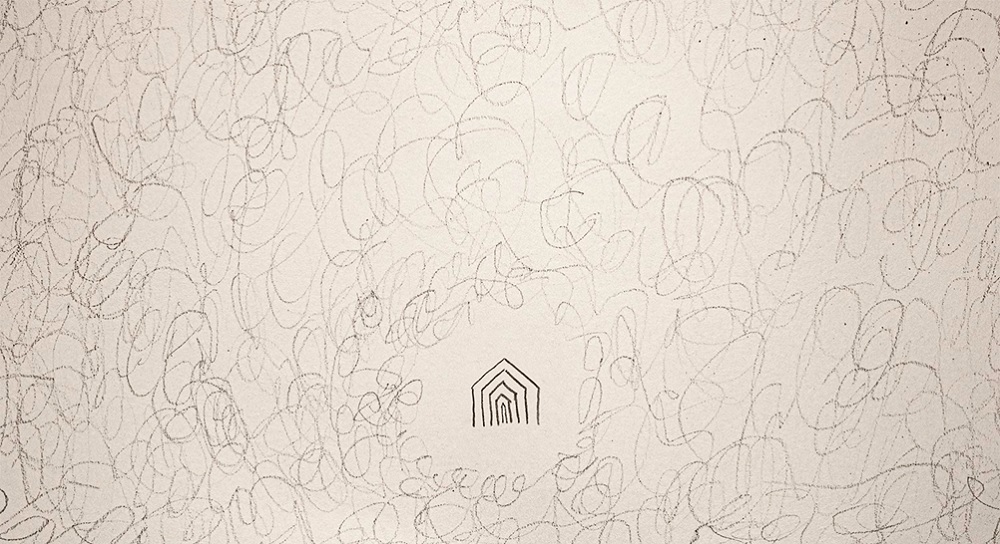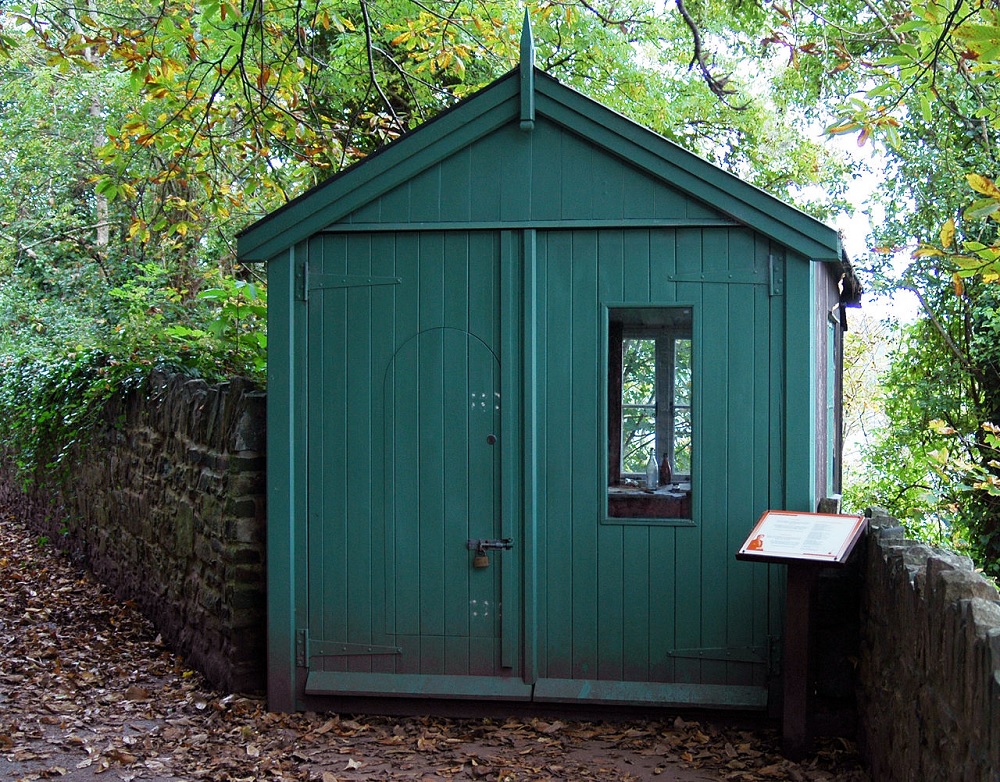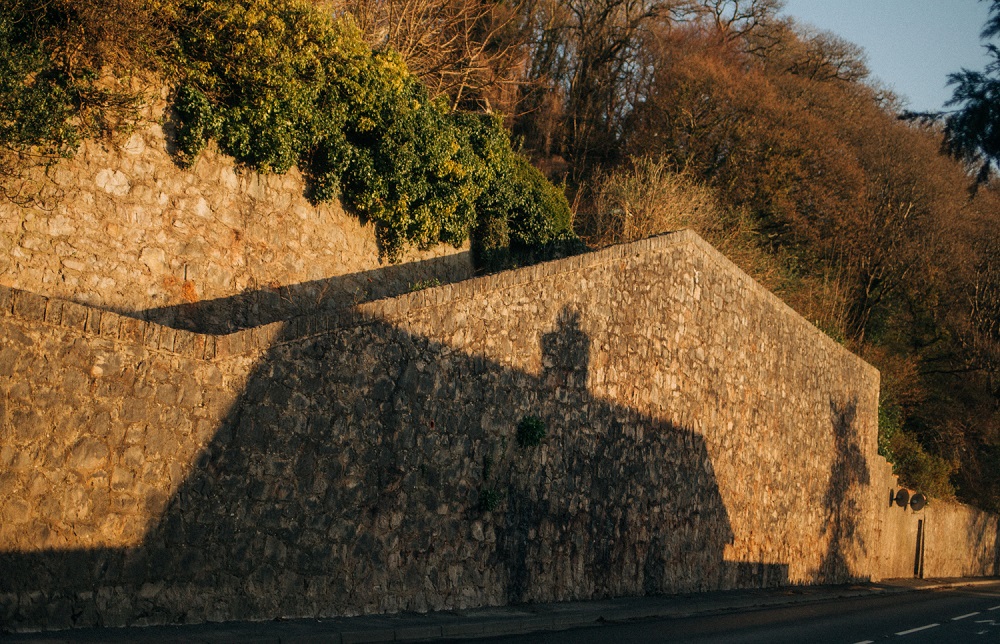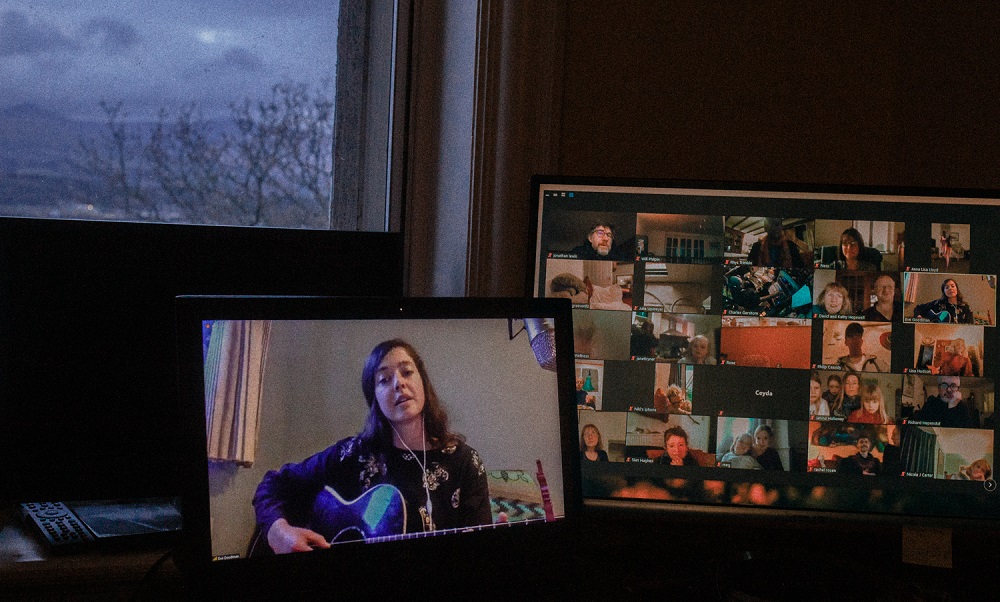Distant Voices: How the Welsh arts and creative scene is staying resilient in the time of Corona

Will Philpin
Imagine walking into your new studio in Cardiff Bay. A white-walled blank canvas. It’s moving in day, boxes waiting to be unpacked. It is the first week of March 2020.
Then, the news rolls in. Gwyn Eiddior, an art director and designer, recalls: “I got about four phone calls that day… The fragility of our industry was exposed so quickly by this virus. Work disappeared overnight.”
In the last month creative professionals have been less going back to the drawing board, more having their drawing boards thrown in the trash, as plans, cultural events and projects disappear altogether.
Coronavirus poses a profound challenge to the arts and creative industry. It threatens the livelihoods of thousands of freelancers, with individuals and businesses struggling to keep their heads above the water.
But it also poses questions apart from financial ones. What role do creatives play in this crisis? How can we emerge from this stronger? Will we emerge at all?
Expression
The government’s division of society into essential and non-essential workers poses questions for the sensitive (and perhaps egotistical) creative mind.
After all, how would the lockdown be tolerable for the millions confined to their homes without the films, novels, and music produced by the non-essential artist?
It’s true – health workers are more important. Delivery drivers and retail staff are rightly held up as heroes. But must it be either/or?
The value of art and culture, that bring both illumination and escapism – has never been more apparent.

February 2020. A classroom in Caernarfon. Artist Mirain Fflur encourages a boy to turn the distracted doodles in the corner of the page into a piece of art. He draws a tiny house, a haven surrounded by chaotic patterns.
Fflur said, “It expressed a lot about him, how he was feeling about home and things going on in the world.”
Fflur is one of several practitioners providing art therapy to community groups. Art enables us all to form stories around our experiences. For these dependency groups, and ourselves as creatives – it can be an essential link into a wider healing process.
“It’s shocking the amount of trauma people go through that they don’t process,” she says.
Currently, all classes are cancelled. Mirain expresses concern and looks forward to reaching out to these individuals online. For creatives, it’s not just the loss of pay; it’s the loss of connection and purpose created through these projects.
Voices
The sudden vacuum at the heart of the creative industries has many art organisations scrambling to support the freelancers at the heart of the industry.
At Literature Wales, some tutors have retained their fees and will instead be offering their courses online, or later in the year. Chief Executive of Literature Wales Lleucu Siencyn hopes that writing commissions greenlighted before the crisis will help “‘keep the wolf from the door”.
Lleucu fears that the present limitations will undo the recent work undertaken to alter Wales’ privileged male-dominated literature scene, such as initiatives focusing on emergent writers from varied backgrounds.
Rebecca Gould, Head of Arts in Wales for the British Council, also acknowledges that the pandemic will make bringing diverse voices to the fore more challenging than ever. “We must be careful that everybody is heard and included,” she says.
The message is that it’s imperative that these creative lights don’t go out; that grassroots groups and struggling individuals are enabled – and remunerated – for their creativity and practice. And that Wales’ story continues to be shaped diverse voices.
A commission isn’t merely work, but a message that you are seen, your voice is heard and you are valued.

The Pause
It’s strange, knowing you’re living through history. “The Eisteddfod that didn’t happen. People will remember this in 100 years time,” speculates Lleucu.
For creatives, there’s a pressure – internal and external – to incorporate this crisis into our art, given the so-called free time now available. But a lockdown is not a writer’s retreat, nor is home always a comfort zone.
Durre Shahwar practices auto-fiction, writing about her experiences growing up in a South Asian family in South Wales.
For Durre, writing about it isn’t on the agenda right now.
“A retreat is a choice, taken under better circumstances,” she says. “I’m currently living with my family. I can’t write with noise around me, and there’s always noise around me now.”
Lleucu agrees: “Most of us don’t have a Dylan Thomas writing shed in the garden.”
Coronavirus is not a brief you have to respond to. It’s a forced pause, a hugely disruptive set of restrictions and problems and our own health and family matter most.
Create for the sake of it, create for joy – or don’t. Despite the avalanche of tutorials; there’s still no convincing road map for how to be a functional artist in the time of Covid-19.

Reimagine
Right now, how we’re connecting feels novel, strange and disconnected – everyone a remote worker, everyone siloed. Strangely equal – all stuck in the house, all squares of equal shape in little digital patchworks of Zoom.
The lockdown has forced artists to reimagine their projects in these new boxes.
Prior to the crisis, Julie Upmeyer, an artist initiator based on Anglesey, had been working on ‘Unus Multurom (in latin, ‘One of Many’) – The Possibilities of a House’.
Initially, the project was conceived as a two week phantasmagoria of multimedia installations from 111 artists, inspired by, built from, and both displayed and woven into the fabric of the house.
For Upmeyer and the artists who had invested months of work and effort, cancellation or postponement were out of the question. Creativity cannot be switched off.
Instead, Julie is embracing rethinking the project, which will unfold throughout the year in the digital realm.
Julie says, ‘I’m not sure what I’m doing. But I know that 111 people are interpreting it 111 different ways’.
Two weeks ago, opening night still went ahead – the exhibition opened. Fifty artists, over a three-hour Zoom call, were there in spirit and pixel. There were performances, dancing, singing, buffering and stuttering – tinny, low resolution voices and laughter echoed through the house.
On the digital stage we’ve all been set thrust upon – the community still formed in style.

Support
Amidst the sirens outside and daily uncertainty, it’s affirming to see ever more initiatives and efforts emerging to support freelancers.
‘What Next?’ may be the question on everyone’s minds right now, but it’s also an organisation formed in response to the Conservative government’s cuts to the arts.
Their open door, invite yourself policy and welcome approach has extended to their new Zoom-only presence. The last two sessions I’ve attended have placed freelancer support firmly on the agenda, and a recent rechristening to ‘What Next Cymru’ has seen creatives from across the north and west of Wales link up for a nationwide roundtable.
Yvonne Murphy, independent director of Omidaze productions and co-founder of What Next Cardiff, spoke in the last meeting about using this opportunity to create new ways of securing freelancers receive paid, meaningful work, while also developing us professionally.
She speculates that “there’s going to be lots of offers around mentoring and networking, learning and development. But the emphasis I suspect will be on paying the facilitator or trainer. This is a great opportunity to open the door and share power.”

Go on Singing
When we eventually un-cocoon, arts, culture and the communities they serve and nurture will be needed, not just as entertainment, but as a crucial way of sensemaking, to frame this experience.
It’s a story we’re all living in, one felt, experienced and not just an echo of distant news in other places. It’s invisible – everywhere and nowhere.
Small nations have big stories – and in Wales all our stories are valuable. We’ll need ways of sharing and in our specificity and individuality we can speak across time, space and place to people who’ll hopefully learn and develop from this strange chapter.
Reflecting on storytelling, Rebecca Gould says: “The more specific you can be, the more universal you are. Offer up the detail of the individual story of where you are, what you’re going through, and I can guarantee it’ll speak authentically to somebody.”
Until then, while the news feels like fiction, it’s our role to create new ways of supporing one another, sharing our own present truths – and having fun. Remember that?
As Lleucu says: ‘The art sector are the ones making sure we’re having fun. We’re not going to suffer in silence. We will connect with each other. We’ll enjoy each other’s company.”
If our culture reproduces itself now by reading old poetry aloud on Twitter or watching low resolution symphonies with the occasional buffer, so be it – take it in a spirit of compromise. It’s our culture and our community.
These connections are as invisible as the threat we all face – but much more enduring.
Right now, we’re feeling diminished – reduced to a house, a window, a screen. Wales has shown that houses can be galleries, windows can be canvases, screens can be stages that surprise you.
We are here and we endure, we work and create. Harmonising – even from a distance.
‘Be of good heart, cry the dead artists out of the living past –
our songs will all be silenced. But what of it? Go on singing.’
Orson Welles
Will Philpin is an independent creative director, filmmaker and writer based on Anglesey – www.twitter.com/willjpin / www.instagram.com/willjpin
Links:
Gwyn Eiddior – https://www.gwyn.space/
Mirain Fflur – https://twitter.com/mirain_fflur
Literature Wales: https://twitter.com/LitWales
What Next Cymru: https://twitter.com/WNCardiff
Durre Shahwar: https://durreshahwar.com/
Julie Upmeyer / The possibilities of a House exhibition: https://www.plasbodfa.com/unus-multorum-2020
Support our Nation today
For the price of a cup of coffee a month you can help us create an independent, not-for-profit, national news service for the people of Wales, by the people of Wales.







Isnt the Latiin word for house – domus?
Gwydi gweli a gwaedlan
A gvisca seirch a meirch cann
Neud ew hun bet Kintilian.
……………… gviscav…………